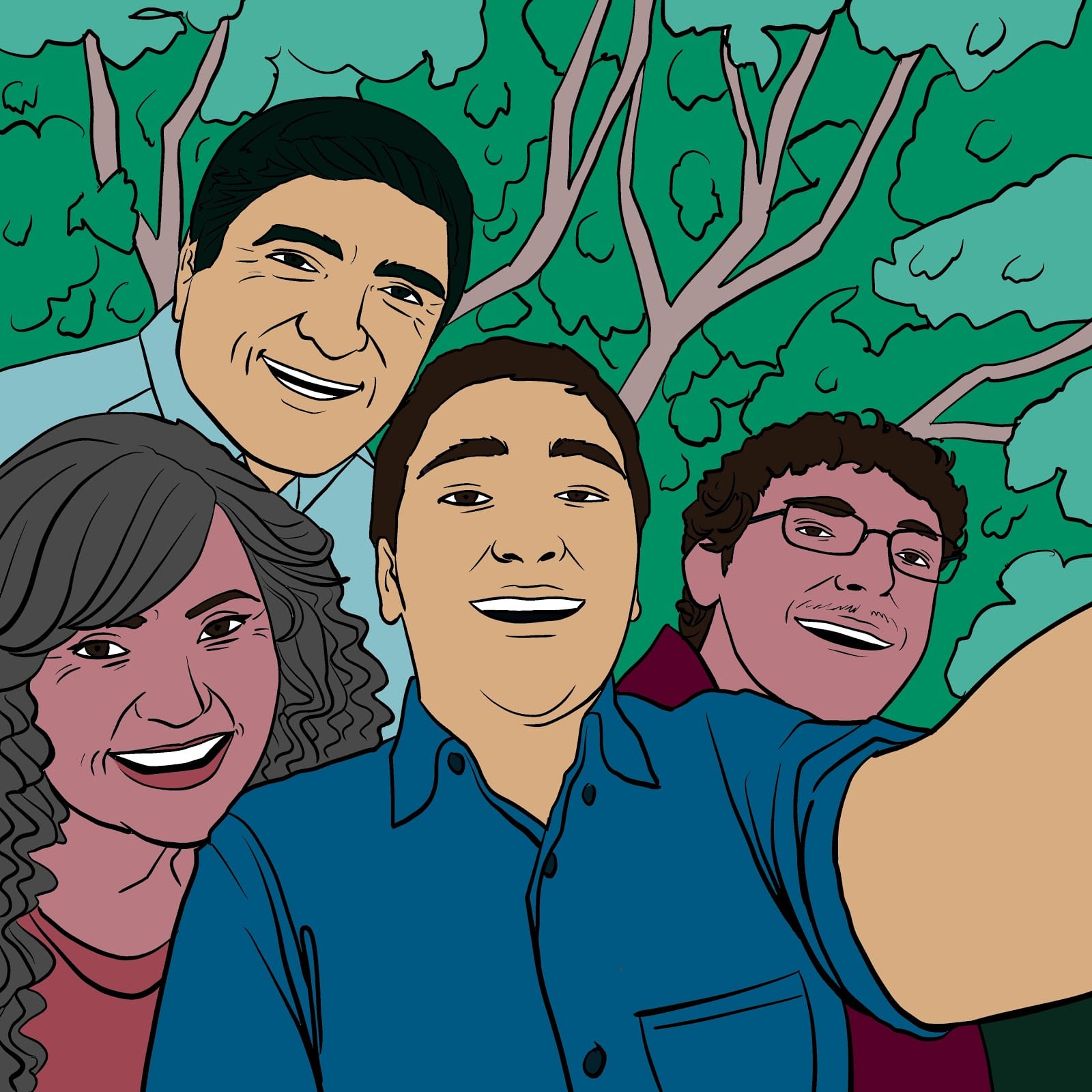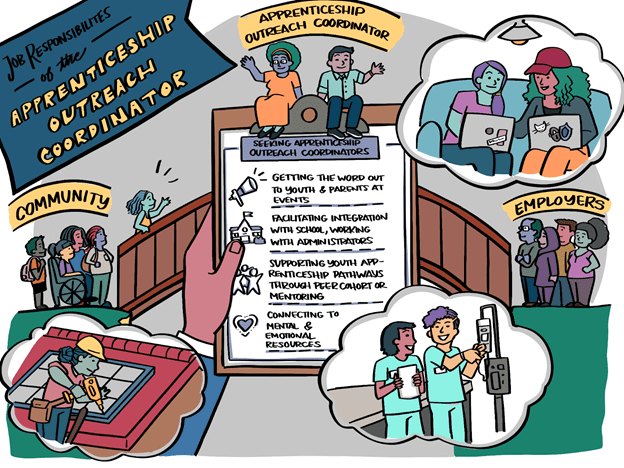Better Careers Design Group Spotlight: Team Central CoastJune 2021
The Better Careers Design Group is a multi-year project funded by The James Irvine Foundation focused on developing solutions to local workforce problems elevated through community engagement. The goal of the Design Group initiative is to equitably connect Californians to good jobs with family-sustaining wages and advancement opportunities. Twenty organizations participate in the Design Group, divided into four local teams based on geography: Alameda, Central Coast, Inland Empire and Los Angeles. We’ll be publishing a series of spotlights on each Local Team to highlight these solutions, and the hard work that went into co-creating them with communities over the last 18 months despite the challenges posed by COVID-19.
How do we help first generation immigrant youth in Santa Cruz and Monterey counties get the information and guidance needed to access and be successful in middle-wage careers as they enter into adulthood? In January 2021, despite the challenges of the prior year, the Central Coast Design Team committed to answering this question by partnering with community representatives to design a unique intervention that creates new pathways to middle-wage careers for first generation immigrant youth. This cross-sector team - composed of representatives from the Monterey County Workforce Development Board, Santa Cruz County’s Workforce Development Board and Human Services Department, and Hartnell College Foundation - has been working together for over a year to develop a workforce innovation customized for their counties. To bring in the voices of these young people who have been greatly impacted by the pandemic, the Design Team organized Zoom sessions to brainstorm, prototype and test solutions ideas.
Thanks to the collaboration of community members, the team learned more about what obstacles come between first generation youth and a well-paying career and continued to evolve their original idea in surprising ways. One of the participants who joined the listening sessions said that they feel like adulting is a mystery that they can’t crack:

“Can they make expectations, commitments, and requirements clear?
I feel like there’s something that I am not being told.”
In order to give people the confidence to succeed, the youth suggested the team create a life skills training that featured essentials like writing a check, getting a mortgage, and searching for jobs.
Team Central Coast recognized the benefits of this idea and decided to run with it. They built out a prototype of the solution idea and tested it with community members to learn more about what life skills first-generation youth were missing, as well as what supports would be needed to overcome barriers to work. Youth and parents elevated that mentorship is the most vital support, most notably as it relates to managing a budget, work-life balance and professional development. From this finding, the team pivoted to its revised solution.
Team Central Coast will build a mentorship program for first-generation immigrant youth that will coach them on key life skills such as financial literacy, emotional wellbeing, entrepreneurship, and job preparation, and ultimately connect them to high-quality career pathways.

The path to this solution was not easy - the members of Team Central Coast and the communities they serve suffered enormous tragedy and hardship over the past year and a half. The two counties have experienced just under 60,000 confirmed coronavirus cases and 600 related deaths since the first person in the United States died from the virus in neighboring Santa Clara County. Just 6 months later, wildfires tore through the Central Coast region, forcing 43,000 people (including several Design Group members) to swiftly evacuate their homes.
Despite these challenges, Team Central Coast stayed committed to the work. The team responsively shifted its community engagement strategy, using virtual interviews and focus groups to engage over 50 community members across the two counties. They carved out time to attend planning meetings and virtual workshops to improve their approach to human-centered community engagement.
The team will continue to build out the plan to implement this new program through the end of 2021, when they will seek funding from the Irvine Foundation and other philanthropic and government organizations to implement their innovative solutions. Over the next couple of months the team will be focused on building an equity-focused continuous improvement process that will ensure the implementation team uses quantitative and qualitative data to improve programming on a regular basis. At the center of everything the team works on will be the goal of providing equitable career pathways to first-generation immigrant youth in their communities.

